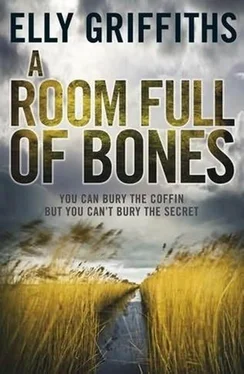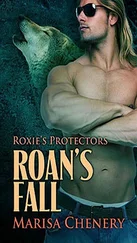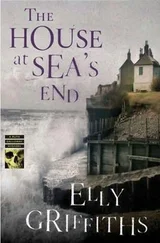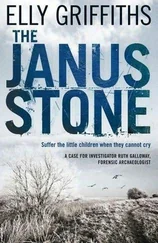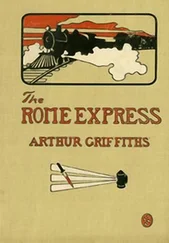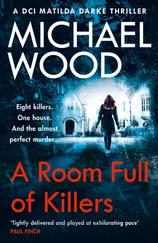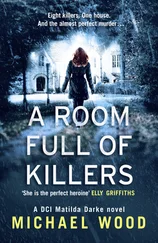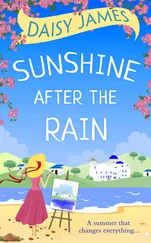The horses had been impressive. Before he left, Smith had taken him to watch them on the gallops. That had been some sight, seeing the horses coming up the hill, three abreast on the black all-weather track, steaming in hazy autumn sunshine. As they passed they had made a noise that was something between panting and snorting, heads straining against tight reins, manes and tails streaming out.
‘They’re beautiful,’ he hadn’t been able to stop himself saying.
Smith had looked at him with real pleasure. ‘They’re my pride and joy,’ he had said.
There was no doubt that Smith loved his horses but he was still an arrogant bastard. And there is something about the whole set up – the stables and the museum – that smells funny to Nelson. But is it enough? For the past three months Nelson and his team have been working flat out trying to crack a drug-smuggling ring. The county has suddenly been flooded with Class A drugs and no one really knows where they are coming from. Nelson has been liaising with a shadowy body called the Tactical Crimes Unit, but so far no one has been able to identify the tactics involved. Smuggling usually involves the ports, but though Nelson has been mounting round-the-clock surveillance nothing has turned up. And still the drugs keep surfacing. He can’t really afford to take officers off the case to investigate – what? Some crackpot letters? A feeling that things aren’t quite what they seem?
The first person he sees at the station is Judy Johnson. She looks exhausted. He knows that she was at the docks last night.
‘Any luck?’ he asks.
‘No.’ She yawns. ‘And I had to sit in a car with Clough all night.’
‘Did he eat all the time?’
‘Even when he was asleep.’
Clough’s capacity for food is legendary. He’s a good cop but Nelson wouldn’t like to spend the night in a car with him.
‘Go home after the meeting,’ he says. ‘Get some sleep.’
‘Thanks boss.’
Nelson keeps the briefing short. Judy Johnson gives an account of last night’s abortive stakeout. They discuss possible leads. Clough gives it as his opinion that the drugs are coming from Eastern Europe. Nelson shifts uncomfortably in his seat. Over the last few years, a great number of refugees from Eastern Europe have come to settle in King’s Lynn. It’s customary for the press, and some police officers, to blame every crime on the new arrivals. Nelson knows it’s his job to stamp on such talk. Didn’t he recently attend a briefing on ‘Policing in a Multicultural Society’? Actually, he had fallen asleep after ten minutes but he still knows that Clough’s comment isn’t helpful.
‘Have you got any evidence for that, Cloughie?’ he growls.
‘Well, Russians…’ says Clough unrepentantly. ‘The Russian mafia. They’re up to their necks in drugs. Like the Chinese triads.’
There’s a big Chinese community in King’s Lynn too.
‘Like I say,’ says Nelson. ‘No evidence.’
‘Not many boats in the port from Russia,’ says Judy.
Clough glares at her. ‘They use mules, don’t they? Some poor sucker forced to swallow the goods. Quick shit and bingo. Kinder Egg.’
‘Kinder Egg?’ repeats Judy faintly.
‘Yeah, that’s what they call it. Surprise every time.’
‘I’ll see what Jimmy has to say.’
Nelson has an informer who only speaks to Nelson and then only under conditions of elaborate secrecy. He trusts this man as far as he would trust any untrustworthy bastard.
‘OK,’ he says now. ‘We’ll give it another night at the port. Fuller, you can do a stint with Tom Henty.’ Tanya Fuller, an extremely keen DC, looks pleased. It’ll do her good to have some responsibility and Henty will keep an eye on her. Nelson turns to the Smith Museum, giving a brief description of events on Saturday. He tries to keep it as flat as possible but he can tell that the team are intrigued.
‘Were there clear signs of a break-in?’ asks Tanya.
‘Nothing definite. I’m sending some PCs house-to house and I’ll wait to see what the SOCOs come back with. Johnson, can you liaise with them?’
Tanya looks disappointed, Judy stifles a yawn.
‘So it may just be natural causes,’ says Clough, biting into a Mars bar.
‘Stephenson thinks so. Cause of death was pulmonary haemorrhage. Bleeding on the lungs,’ he explains for Clough’s benefit.
‘What could cause that?’
‘Lots of things including infection or drug-taking.’
‘Did he take drugs, then? This curator bloke?’
‘His body showed signs of persistent drugs use. And I found a hundred grams of cocaine in his office.’
Clough whistles. ‘That’s a lot of Charlie.’
‘Do you think it was natural causes, boss?’ asks Judy.
Nelson pauses. ‘Most likely. There are a couple of odd things though.’ He tells the team about the letters. ‘Fuller, can you do some digging on the Elginists? Find out if they’ve ever been involved in anything dodgy. Clough, you and I might pay Lord Smith another visit.’
‘Great,’ says Clough, to general laughter. ‘Might get a tip for the National.’
‘The Necromancer,’ says Nelson. ‘He’s got a lot of bone apparently.’
As Ruth nears her house, she is aware of a strange humming noise on the air. Is it a bird, a low-flying plane, the coastguard’s helicopter? Perhaps it’s a bittern, whose low, booming call she sometimes hears at night. Thinking of birds reminds her of David, her previous next-door neighbour, who was the warden of the marshes. David knew every stick and stone of the Saltmarsh, he could recognise the call of any one of the hundreds of birds that use these wetlands as a pit-stop on their journey south, he could find his way across the treacherous quicksand in the dark and had once saved Ruth’s life. But David has gone, and if there’s a new warden, she hasn’t met them yet. As Ruth gets closer she sees that the sound is coming from Bob Woonunga, who is sitting on the grass in front of his house playing something which, from memories of Rolf Harris, she recognises as a didgeridoo.
She parks outside her cottage and gets Kate out of her car seat. Kate is now walking. She started at ten months, which is early according to the books. And while Ruth was proud of her daughter for reaching this milestone ahead of time (walking at ten months = first class honours degree from Cambridge), she can’t help thinking that it was easier when she could carry her everywhere. Now Kate struggles to be put down and totters purposefully over to Bob and his didgeridoo. Ruth follows, more reluctantly. Flint, lurking by Ruth’s front door waiting for his dinner, jumps over the fence and is the first to reach their new neighbour, rubbing himself lovingly around his legs.
‘Want,’ says Kate, pointing at the didgeridoo. This is one of her new words.
Bob puts down the long wooden pipe and says, ‘Hallo little neighbour. You were asleep when I met your mum.’ He reaches out and strokes Flint, who arches his back appreciatively. Ruth is shocked at the cat’s infidelity.
‘Mum,’ says Kate, putting a hand on the painted wood of the didgeridoo. ‘Mum, mum, mum.’
‘Careful Kate,’ says Ruth.
‘Oh, don’t worry.’ Bob’s smile seems impossibly wide. ‘It’s good to touch things. That’s how we learn, right?’
Ruth agrees that it is. Touch is an important sense for an archaeologist. She remembers how Erik could tell just by holding a stone tool how it had been made, and what it had been used for. He used to shut his eyes, she remembers, while running his thumb along the sharp edges of a flint. She supposes that one day she’ll stop thinking about Erik.
‘Is it hard to play?’ she asks, indicating the didgeridoo.
‘Have a go.’ He grins his endless grin again.
Читать дальше
